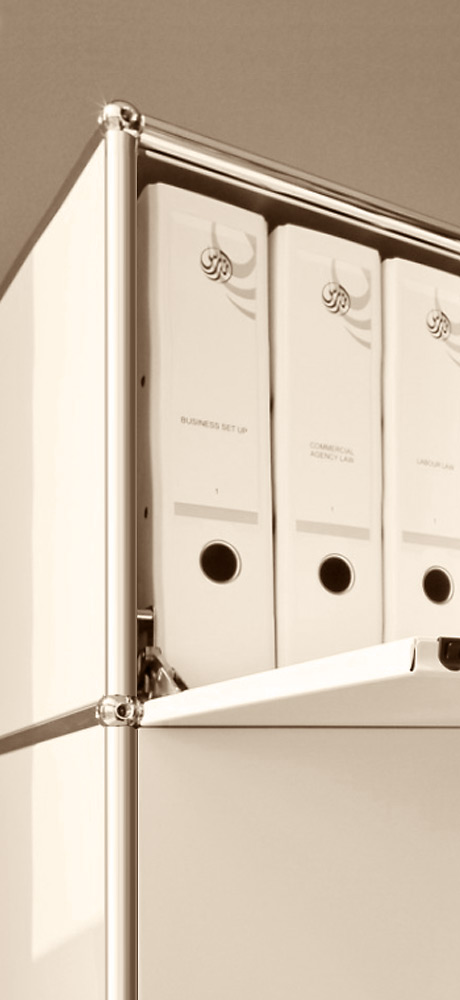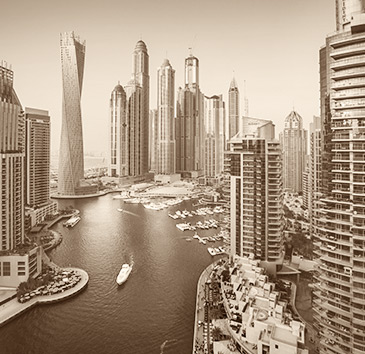Real Estate
How to successfully transfer property
Should you have decided to purchase a residential or commercial property in the United Arab Emirates, we gladly support you in a number of areas:
- Preparing and revising contracts for the acquisition and sale of real estate, such as memoranda of understanding as well as sale and purchase agreements
- Coordinating with real estate agents, developers, conveyancers and land departments
- Assisting in visa-related matters, such as property golden visas
Acquisition of Real Estate in the Emirate of Dubai
The local real estate market has developed into a strong economic factor in the United Arab Emirates ("UAE"). This holds true especially due to the fact that it has become the focus of interest for international investors.
Legal Basis
The legal framework for selling or purchasing real estate varies from Emirate to Emirate. Law No. 7 of 2006 as amended ("Dubai Real Estate Registration Law") forms part of a number of laws which were issued in the Emirate of Dubai to govern the real estate sector.
In particular, regulations were implemented that name those areas of Dubai in which foreigners are permitted to purchase property (so-called freehold areas), such as Arabian Ranches, The Palm Jumeirah and Dubai Marina, as well as rules with regard to the purchase of off-plan properties and provisions regulating jointly-owned property. Furthermore, the rights and obligations of real estate brokers were redefined from scratch to set bounds to dishonest business practices.
Types of Property Rights
With regard to types of property rights, it has to be distinguished between freehold and long-term leasehold.
According to general understanding, a freehold title provides the most superior form of property ownership. The bearer of a freehold right is the unrestricted owner of the land and the structures built thereupon. Hence, he can freely dispose of the property, in particular by selling, mortgaging or bequeathing his asset. The only restrictions are existing laws and rights of others. The freehold right is, furthermore, not limited in time.
Long-term leasehold defines a right derived from freehold. The main difference is that the leasehold right is limited by time and subject to a superior title. In the UAE, the period for long-term leasehold lasts up to 99 years, depending on the project. Generally, the rent is a one-time payment made for the whole term at the beginning of the lease.
Eligibility to Purchase Real Estate
All individuals, regardless of their nationality, are allowed to purchase both freehold and long-term leasehold property in the Emirate of Dubai.
The opportunities for corporate bodies to purchase real estate have been modified numerous times. Currently, merely such companies that are either licensed with the Department of Economic Development in one of the seven Emirates or one of the free zones in Dubai or registered as an offshore company with the Jebel Ali Free Zone Authority are eligible to acquire properties. Furthermore, certain companies licensed with the Abu Dhabi Global Market, the Ras Al Khaimah International Corporate Centre or the Ras Al Khaimah Economic Zone are entitled to purchase real estate. In addition, each company has to provide a no objection certificate for the property transaction issued by its respective licensing authority which in turn needs to be recognised by the DLD.
In certain instances, such as inheritance matters, it might prove to be beneficial to purchase a property through a corporate body.
Practical Advice
The following aspects should be observed in order to ensure the success of a real estate transaction in the Emirate of Dubai:
- Thorough market analysis
- Selection of established project developers and brokers who are duly registered with the competent authorities
- Close examination of the purchase agreement and all other documents before execution
- Calculation of all current and future costs
- Payment of all monies due only into an escrow account or to the respective beneficiary
- Receipt of all relevant documents from the developer or previous owner

